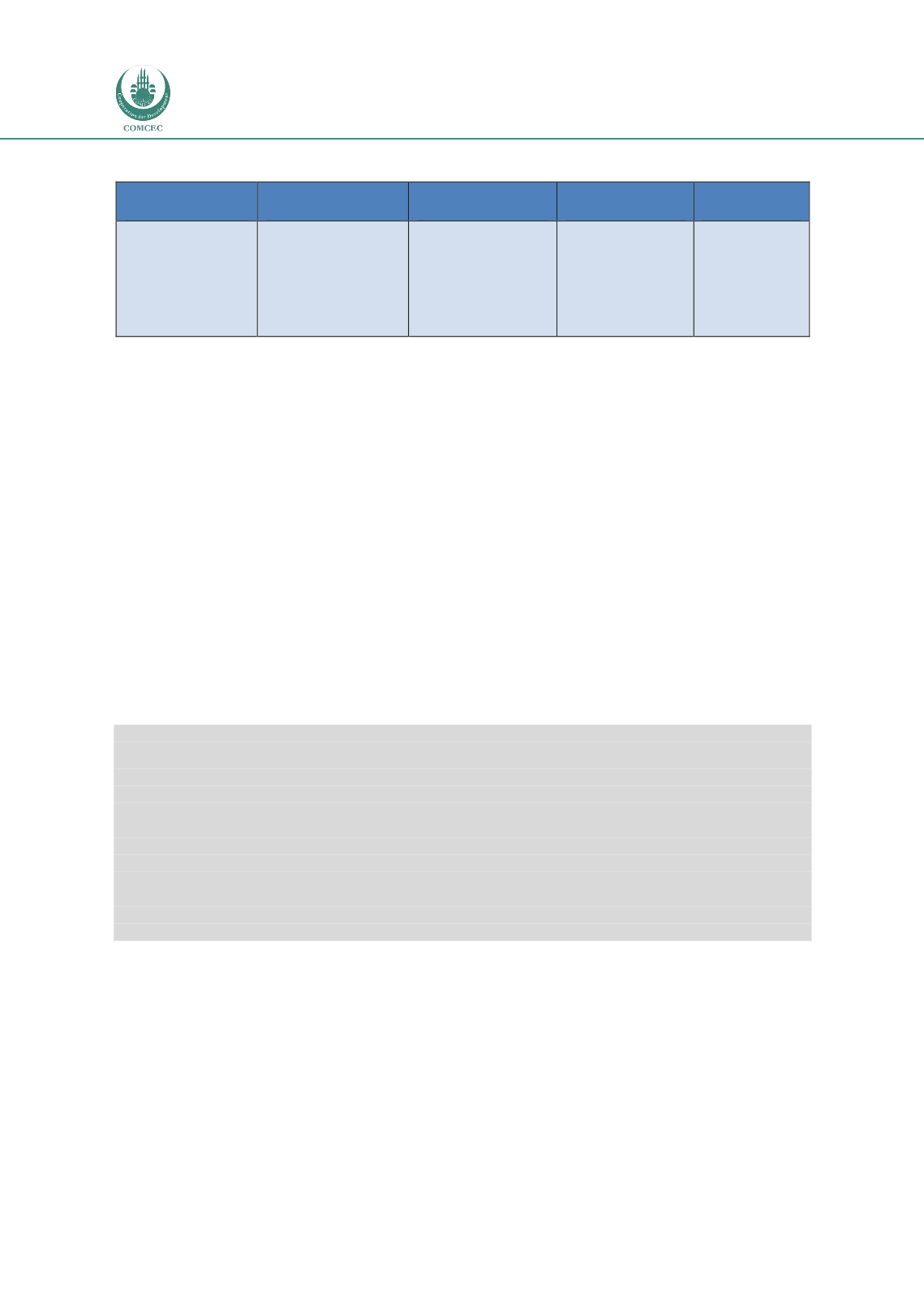

Promoting Agricultural Value Chains:
In the OIC Member Countries
56
Table 4-2 Smallholder integration approaches in selected OIC Member Countries
Integrated
development
Producer
organisations
Public-private
partnerships
Donor/NGO
programmes
No specific
policies
Malaysia
Indonesia
Senegal
Egypt
Pakistan
Bangladesh
Mauritania
Palestine
Turkey
Egypt
The Gambia
Jordan
Uganda
Egypt
Indonesia
Nigeria
Mauritania
Mali
Cameroon
Tajikistan
Sudan
Saudi Arabia
Oman
Chad
Source: Authors’ elaboration
Upgrading, which is defined in terms of increased productivity, efficiency and quality, plays an
essential role in bringing smallholders into formalised, higher value markets because it
increases smallholder contributions to value added (Dunn, 2014). While informal markets
require no standard quality or grading norms, modern retail chains and export markets often
require the delivery of specific crop cultivars with characteristics (e.g. size, shape, taste) that
consumers prefer and the adherence to quality and food safety standards related to pesticides
or bacterial contamination. Quality control measures may include public inspections (e.g. for
CODEX Alimentarius adherence) or independent third-party inspection (e.g. for GlobalGAP and
organic production).
However, in many OIC countries smallholder products are often not compliant with the
demands of high value markets, owing to a generally weak institutional environment with
lacking extension support or absence of financial services in rural areas, and a lack of
resources and capacities on the part of producers. Particularly the lack of well-defined food
quality standards and quality control makes it difficult for smallholders to access formalised
value chains. As agricultural produce passes through numerous middlemen, traders and
wholesalers, there are more chances for it to be exposed to unhygienic conditions and failing to
meet even basic food safety requirements.
Box 2. Helping farmers to become certified for increased value added: The Jordan Exporters and
Producers Association (JEPA)
In Jordan, fresh fruit and vegetables constitute most of its agricultural exports. The EU has been identified as
the most lucrative market for value capture compared to, for instance, other Arab countries. Since exports to
the EU are held to high quality standards, such as GlobalGAP, market access was initially restricted to a small
number of large Jordanian producers. However, due to the initiative of the Exporters and Producers
Association (JEPA) – an organisation that comprises members from all stages of the agricultural value chain –
the number of GlobalGAP certified producers has been growing rapidly in recent years. Since 2006, it provides
advisory and training services for GlobalGAP as well as other standards (HACCP, ISO 9000, organic). The
number of certified farmers increased from 1 with the start of the training programme to 100 in 2012 (Oxford
Business Group, 2012a). By now, JEPA members are responsible for 100 percent of Jordanian agricultural
exports to Europe (USAID & EAT, 2012).

















